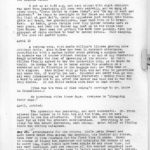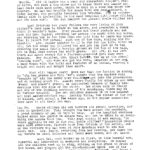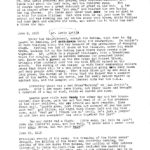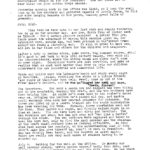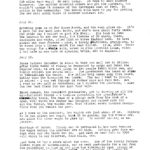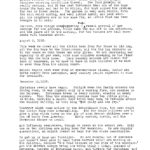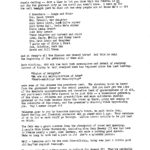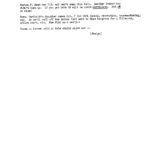Pine Mountain Settlement School
Series 09: Biography – Staff/Personnel
Series 07: Directors
EVELYN K. WELLS 1918 EXCERPTS FROM LETTERS HOME
Evelyn K. Wells: Secretary 1916 – 1931, Acting Director 1931
TAGS: Uncle William Creech ; Ethel de Long Zande ; shootings ; Aunt Sal Creech ; hymns ; Evelyn K. Wells ; Angela Melville ; correspondence ; funerals ; Community Fair Day ; funeralizing ; Luigi Zande ; Mr. Lewis Lyttle ; Columbus Creech ; spinning wool ; WWI ; mail delivery ; labor shortage ; cows ; Christmas revels ; influenza ; quarantine
CONTENTS: Evelyn K. Wells 1918 Excerpts from Letters Home
1918 March 31, Easter Sunday [045-p.1] A perfect Easter to remember here, if a very grave one in the outside world!
1918 April 13 & May 24 [045-p.1] A torn-up week, with Uncle William‘s illness growing more critical daily. Miss Walker [Margaret Walker, Nurse] has been in constant attendance. Consultation with a Harlan doctor about getting a surgeon here to operate was of course without results … (This was the week of Miss [Ethel] de Long‘s marriage to Mr. Zande [Luigi Zande] in Connecticut.)
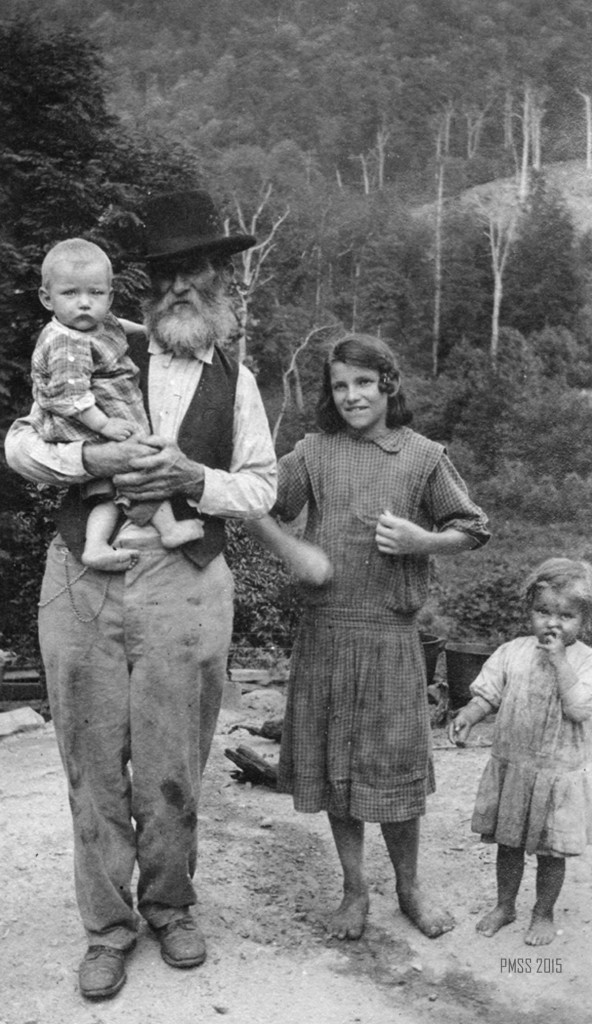
015b P. Roettinger Album. “Uncle William and little William.” [William Creech holding toddler boy, young girl and toddler girl standing to the right.] [roe_015b_mod.jpg]
1918 May 24 [045-p.1] Arrangements for his [Uncle William’s] return: Uncle Lewis Creech and Aunt Nance Dixon from across the mountain, his brother and sister, came over to Pine Mountain for the first time in years….
1918 May 4 [046-p.2] [actually May 4, 1915 ??] The great excitement these days is the shooting on Abner’s Branch. Old Id Napier was a mean old character; couldn’t read or write, but kept a big store and by trade there and lumber and land deals made much money….
The great excitement these days is the shooting on Abner’s Branch. Old Id Napier was a mean old character; couldn’t read or write, but kept a big store and by trade there and lumber and land deals made much money, which he kept in a shoe box under the counter. He had had trouble for years with one john Liniard, a Hyden lawyer, who probably fomented this trouble. (He is conveniently sick in Louisville, in the same hospital with Uncle William, and the same ward. You can imagine how pleased Uncle William is.)
Last Saturday two young fellows who were living on John Miniard’s land came to trade at the store, and presented a check which Id wouldn’t take. They pulled out their pistols and set upon old Lira Napier, striking her across the mouth with the butts, and knocking her in the ribs when she told them to leave the house. Then Id (short for Israel) shot one of the boys, killing him instantly. Lira Napier shouted to Id to run for his life, which he did, but the other boy followed him and got him just as he was crossing the small family burying ground at the top of the hill, and he fell dead across his son’s grave. Old Mrs. Id was left there all alone except for a fourteen-year-old girl they were raising. Her daughter, Mrs. Lloyd Turner, was up at the school, “trading some”, and when she got the word, departed on her nag, a huge woman with the build and features of an Indian, wearing a bright red waist and bright blue skirt.
What will happen next? Some say that one faction is aiming to “dig ten graves and fill ’em”; others that the Napiers will “smuggle up” all the money they would have put into the prosecution and do nothing about it. Almost every family for miles up and down Greasy and Abner’s Branch is implicated because of family connections with one side or the other. But since this is really not one of the fighting sections of the mountains, there may be no further trouble. Our own children discuss it in the calmest and most matter-of-fact way. Luckily Viola, the sister of the boy Id killed, left school a few weeks ago, so the Napier connection here have it all their own way.
1918 May 24 [046-p.2] Uncle William did not survive the second operation, and died in Louisville. They brought him back across the mountain, a great company of men on hand to help…Mrs. Zande, [Ethel de Long] returning from her wedding, got there the day before he died…
Uncle William did not survive the second operation, and died in Louisville. They brought him back across the mountain, a great company of men on hand to help. At the hospital everyone talked about how gentle he always was, and how he tried to do everything the nurses told him. They kept coming in and saying, “is there anything we can do for you, Uncle William?” Louisville people were most attentive, flowers came from friends of the school, one or two visitors who had been at Pine Mountain went to see him every day. Mrs. Zande, [Ethel de Long Zande] returning from her wedding, got there the day before he died; Columbus [Columbus Creech, son] and Henry [Henry Creech, son] were there, and Mr. Zande.
Aunt Sal [Creech], much broken up at first, [but is a lot] like herself now, cheerful and interested in everyone and everything. On Sunday all the children went up to sing, sitting on the grass in front of the house [home of Uncle William and Aunt Sal], and singing all the old-fashioned hymns out of the “Sweet Songster,” like “Here I’ll Raise my Ebenezer“* and “When I Can Read My Title Clear.”
[* “Here I’ll raise my Ebenezer is actually the beginning of the second verse of the hymn, “O Thou Fount of Every Blessing.” Written by Robert Robinson in 1758, it stresses the joy of Christianity and the Christian’s need to rely on the Lord. It was a hymn very familiar to the Pine Mountain community.]
[047-p.3] On Monday afternoon, after Mr. Zande [Luigi Zande] and Andy Drosky had toiled all day over the grave, we went up the hill to the burying. Mr. Crit Lewis preached and prayed, real mountain-fashion; Mrs. Zande told about his last days, and the children sang. But of course there was a great outburst of grief at the end. A few of us stayed after he was “put away” and watched the men laying the big stones. Mr. Zande said later that he was so glad to do this for Uncle William: that once when he had just come to the school and was working one day on the stone tool house, Uncle William had come past and admired his work, and asked him to build him such a house one day.
1918 June 2 [047-p.3] Mr. Lewis Lyttle. Today the whole school, except the babies, went down to Big Laurel to meeting, Mr. Lewis Lyttle being the attraction. We couldn’t do much visiting along the way because of the prevalence of whooping cough…
Today the whole school, except the babies, went down to Big Laurel to meeting, Mr. Lewis Lyttle being the attraction. We couldn’t do much visiting along the way because of the prevalence of whooping cough. Meeting was out of doors on the hillside, under big shade trees, looking out on the bottom lands where three creeks come together. Mr. Lyttle is a regular old-timer, with a tremendous voice for singing and in between sermons (he preached three) Mrs. Zande [Ethel de Long Zande] made a speech on the Red Cross and raised $25.00, bringing Pine Mountain over the top with $75.00 raised at the school. The string of men coming up with their membership dollars means that there will be a Red Cross magazine going away to many homes and many people down Greasy. Then Stacy Ellen [Stacy Ellen Boggs] got up and said a long piece, the burden of it being that the Kaiser was a monster out of the earth, with ten horns, one for every nation warred up against him, and the longest and leanest horn was the U.S.A.
Yesterday there was a Red Cross “Working” on Miss [Katherine] Pettit’s porch [Big Log]. Only a few women were there, but Stacy Ellen had brought a donation of a bag of wool, which we carded and spun.
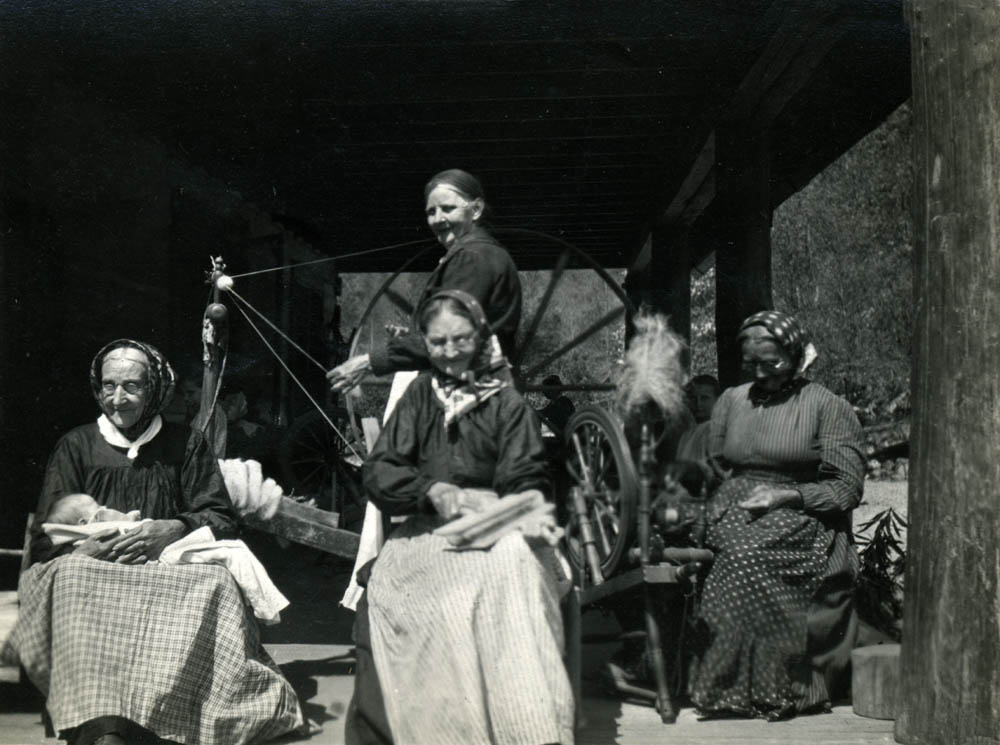
Friends & Family: VI 37. Four women seated on the porch at Big Log. Women are carding and spinning. Woman to far left is holding a baby. Aunt Sal to far right. [Vl_37_1192.jpg]
Laurie Anne stole some candy the other day and her house-mother, Miss Stone [May Stone], made her eat the rest of it in the presence of the other children, who sat around and made remarks. Miss Stone said, “Laurie Anne, just think how ashamed of you the Lord must be.” And Lillie, age eight with flaxen hair and big blue eyes, said “Yes! An’ I reckon the old devil, he’s just a jumpin’ up and down and a-crackin’ his heels together for joy!”
Cam and Nobie had a fight. Nobie said, Cam said he didn’t love his (Nobie’s) soul, and Cam said, “I never said I never loved your soul, Nobie, hit was your ways.”
1918 June 23 [047-p.3] Principal events of the week: the breaking of the three weeks’ drought, the killing of the enemy hog yesterday morning, the arrival of the new nurse from Kansas, the mailing of 4500 letters (Memorial to Uncle William).
Principal events of the week: the breaking of the three weeks’ drought; the killing of the enemy hog yesterday morning; the arrival of the new nurse from Kansas; the mailing of 4500 letters (Memorial to Uncle William [Creech]).This last included the cancelling of all 4500 stamps, as Columbus [Columbus Creech, son of Uncle William], who is now postmaster, had to go to Harlan. I have also actually spun some wool on the big wheel. When you realize that it takes a day to card, spin, wash, pick, and wash again a pound of wool, 70 cents seems a small price for the government to set. [During WWI wool was heavily rationed and prices controlled by the government due to the need for soldier’s uniforms.]
[048-p.4] Tonight Henry and Delia [Creech] are giving their “infare” dinner for the Zandes. Sixteen are invited, and the chickens from all over the country side bought up for the occasion. Oma and Elsie are to wear their new pink cotton crepe smocks.
Yesterday morning work in the office was light, so I took the small boys up on the mountain and gathered baskets of lovely ferns, to fill our wire hanging baskets on the porch, — making great balls of greenery.
1918 July [048-p.4] This week we were down to our last cent and really wondering how to go for another day. And Mrs. Scott Fitz of Boston sent us $150.00 — for a moving picture machine!
This week we were down to our last cent and really wondering how to go on for another day. And Mrs. Scott Fitz of Boston sent us $150.00 — for a moving picture machine! A letter from Mrs. Zande about the advantage of having this machine given us, for extension work, months ago, had been printed in the “Boston Transcript” and found a listening ear. It will be great to have one, and get in war films and others for the children and neighbors.
(After a trip to Benham mines, coke ovens big company stores, etc.) It’s good to get back to this 18th-century valley, even with all its inconveniences, where the mining camps and mines don’t come in over night. Conditions there are just horrible, and make us realize that we must work harder than ever to help our children understand the new industrial and commercial life.
Hulda and Lillie want the “Lohengrin” music and story every night at bed-time. Lillie, retelling the story to a little friend: “And place of that-thar duck (e.g. swan), come up out of the river Elsie’s brother, and he run an’ hugged her neck and says, ‘Howdy, Sister!'”
The deserters. For over a month now Sam Maggard has been hiding out in the mountains, evading the draft, and his two brothers have been helping him. At night he’d come down to his sister’s house near us, bringing the berries he’d picked all day, and Martha would exchange them with her nearest neighbor for chickens. The three men lived up in a laurel thicket and the whole countryside has been watching for them. Finally, three constables went out for them. They hunted all night, and finally walked right in on them at dawn. The men were torn and dirty and barefoot. The two brothers got away, but Sam got away and “ran like a rabbit” through the woods. The two brothers were captured and taken to town the next day, only to find the gaol crowded and the chairman of the draft board refused them as federal offenders. So they came back across the mountain, on the understanding that if they didn’t make Sam give himself up, they’d be sent to Frankfort. So Sam has finally been taken, and the country is quiet again. There are really not many such cases of evaders having to be rounded up.
1918 July 4 [048-p.4] Waiting for the mail at the Office. On Monday our mail carrier struck, having gotten himself badly into debt, lost thirteen horses and having had to sell his milk cows…
Waiting for the mail at the Office. On Monday our mail carrier struck, having gotten himself badly into debt, lost thirteen horses and having had to sell his milk cows. He has eight children, and no crop planted. No mail went out on Monday. On Tuesday one of the neighbors carried it, go sick, and quit.
[049-p.5] Yesterday Mary Winifred Settle, an energetic young woman from Louisville who is here for the summer, took the first-class mail all the way to Rosspoint and brought back letters and a newspaper (14 miles each way). No mail today. We hope to send someone tomorrow. The carrier underbid others and got the contract, but couldn’t manage it because of the increased cost of feed. No action in the community. The school will have to pay for getting its own mail until there is another contract let.
1918 July 11 [049-p.5] Spinning goes on on Far House porch, and the wool piles up. It’s a good job for Aunt Leah Smith, and she’s done about forty hanks…
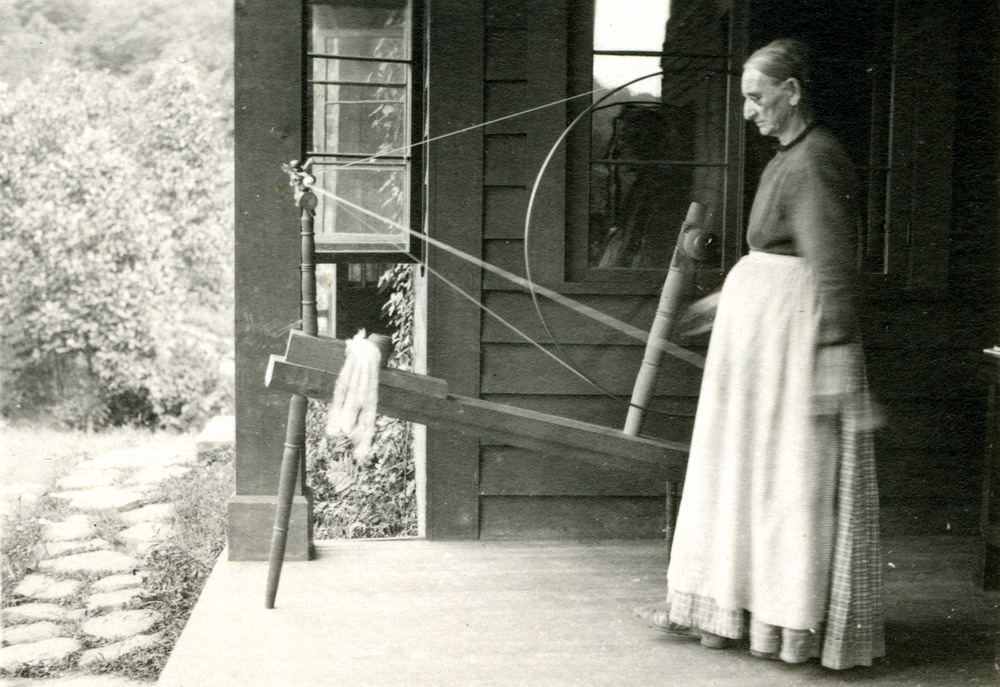
Frances Lavender Album. Aunt Lear (Leah) spinning on porch of Far House I. — See wool laying on the wheel and her hand in motion. [lave018.jpg]
Spinning goes on on Far House porch, and the wool piles up. It’s a good job for Aunt Leah Smith, and she’s done about forty hanks. The other day I called on Aunt Sis Shell. She took me into the bedroom to see her wool, the fleeces of 50 sheep, black, Southdown and white, piled high on three feather beds, we have picked out some fleeces — mine, a lovely Southdown, gray-brown, to be woven into a linsey skirt for next winter. *[Note] (P.S. 1966: There was enough for a whole suit, woven on Pine Mountain looms, which I had made up and wear on speaking trips, and to England.)
1918 July 18 [049-p.5] James Madison Callahan is about to take the mail out to Dillon. After three weeks of riding to Rosspoint to carry and fetch the regular mail, we are now going to let people fetch their own, and simply collect the school mail….
James Madison Callahan is about to take the mail out to Dillon. After three weeks of riding to Rosspoint to carry and fetch the regular mail, we are now going to let people fetch their own, and simply collect the school mail. The government has taken no steps to re-establish the route. The Dillon trip takes only five hours, better than the Rosspoint ten hours. The day I went to Dillon, it rained – I was wet through my rubber cape and rain hat. But I read my own mail on horseback as I climbed the mountain, – also the New York Times for the last four days.
Enoch Howard, the Rosspoint postmaster, got to showing me all his old-fashioned things – a toolbox containing his grandfather’s shoemaking tools; the name of a plough made from the root of a tree, with which his father had ploughed and raised corn for all his family; the wooden reel that clicked every hundred revolutions when you reeled the yarn.
As I came up the mountain, two wagons met just ahead of me. Nothing to do but unload one wagon, take it to pieces, lay the wheels off, and allow the other wagon to pass by. No wonder hauling is expensive.
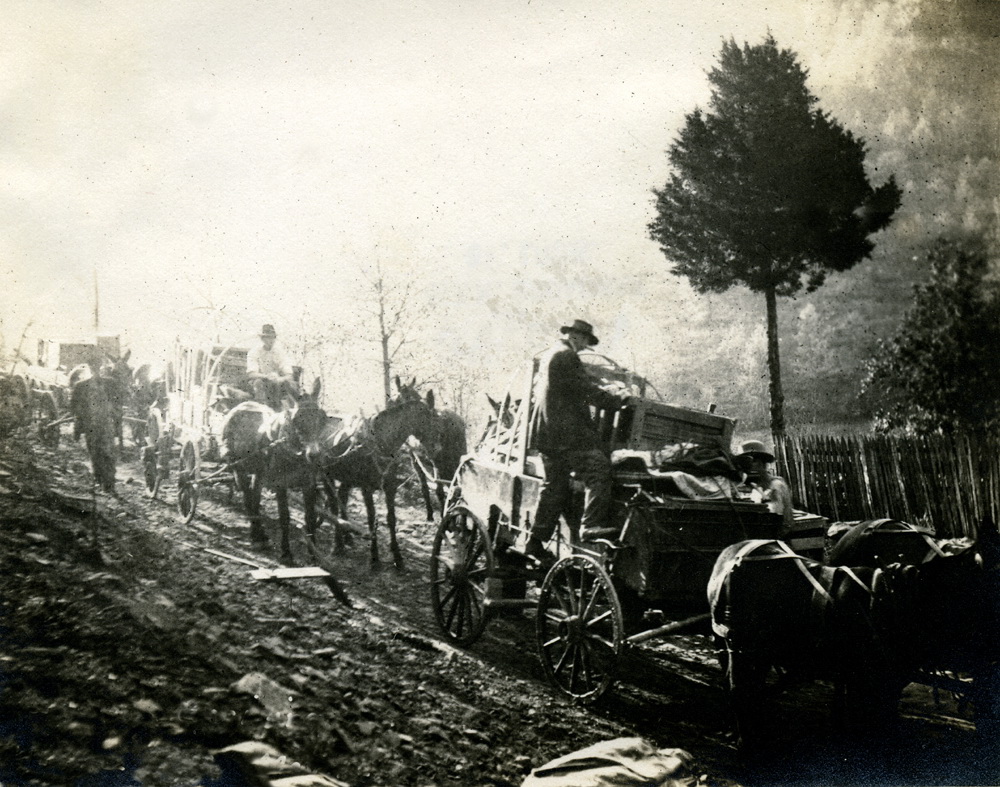
“Wagons arriving at Pine Mountain, May 12, 1913.” [hook_album_2blk__019.jpg]
Shortage of labor: Nobody can be persuaded to hoe corn because the wages across the mountain are so high. Nothing gets done except what our own hands can do. And cash on hand down to $300 with which to pay salaries, food bills, etc.
Last week we had a scare about the cows. One of the lovely Jerseys showed signs of tuberculosis, and we sent post-haste for a man from the University to come up and give the tuberculin test (which of course has to be done every year). We had visions of having to slaughter the whole herd, and the very existence of the school seemed threatened. But the test showed all the cows, even the sick one, to be healthy. But we have decided that Jerseys are too costly, and are replacing them with Holsteins.
1918 August 9 [050-p.6] This week we moved all the little boys from Far House to Old Log, all the big boys to the [Burkham] Schoolhouse, all the Old Log children up to Far House so that house has only girls. ….
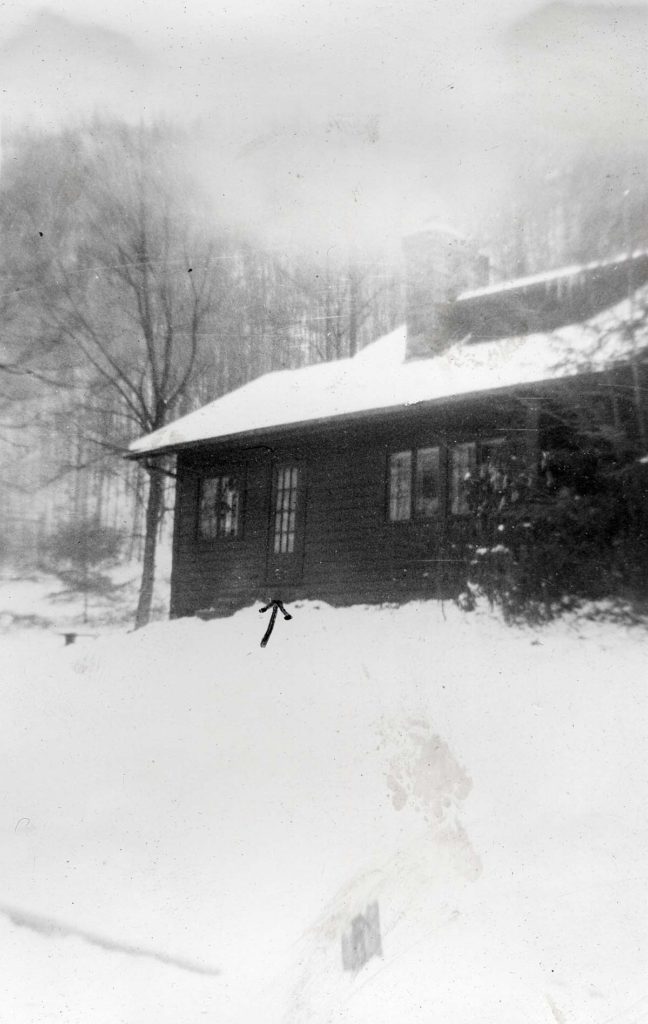
“Our entrance to Far House.” Birdena Bishop Album. [bishop_08_005.jpg]
Christmas revels have begun. Tonight when the family entered the dining room, it was lighted only by a roaring fire, and candles on the balcony. Christmas trees, in every corner, wreaths in every window. Then from the sleeping porches came ten little girls, in white, carrying a laurel rope which they hung in festoons around the balcony railing, as they sang “The Holly and the Ivy.“
Tomorrow night come antics by the Schoolhouse boys, the next night the little boys come a-wassailing. The Far House children are to give a play which turns on the joy of some French children over a box of candy from America. Early morning carols, and the Christmas Masque as usual.
And, influenza everywhere, though no cases at the school yet. Only one or two children are going home for vacation. We are rigidly quarantined, an object lesson we hope for the whole countryside.
We get up by lamp and firelight. We are running out of kerosene and haven’t been able to haul three barrels which are waiting at the railroad, because “the road slipped on yan side of the mountain. And the drivers always bring the wrong thing — today, instead of kerosene, buckets of Christmas candy, and turkeys for Christmas Day!
This fall the Zandes moved into their new house [Zande House], after summer at the Pole House.
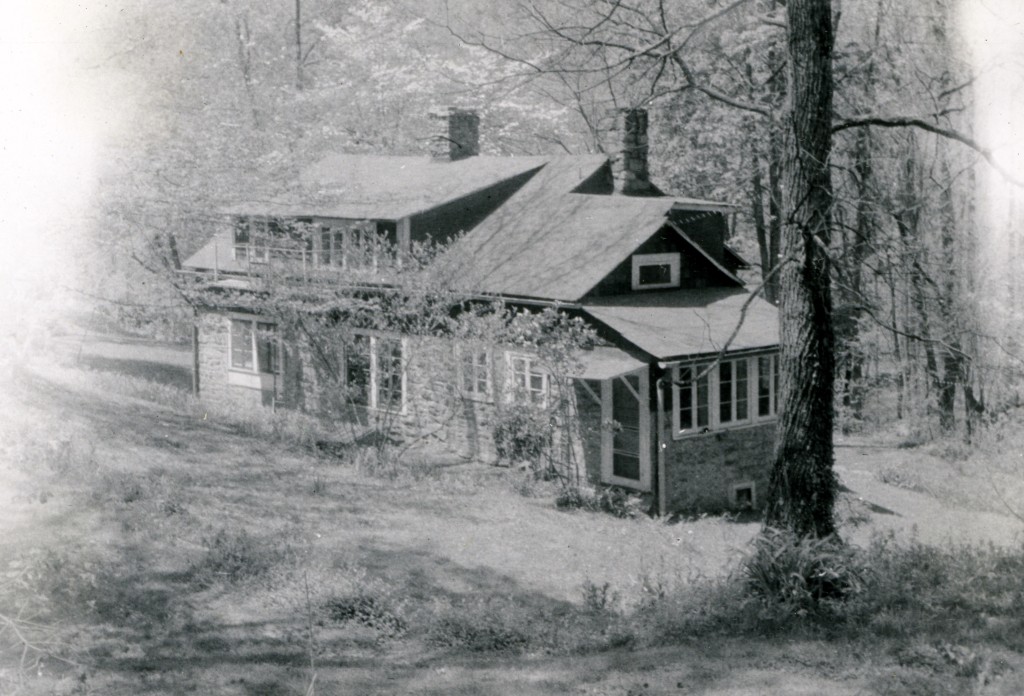
Zande House in 1956, rear view. [pmss_archives_zande_house_JPG.jpg]
CONTENT: Evelyn K. Wells 1918 Excerpts from Letters Home
CORRESPONDENCE FROM WELLS TO MELVILLE
1918 Saturday Evening [n.d.]. [052-053-n.p.] Evelyn K. Wells to Angela Melville. “Angela darling — Just a line to let you know that the funeral is on and it’s the greatest pity in the world you aren’t here. I went up for the mail tonight just to find out how many people are at Uncle Wm’s. —-291. (personal letter order is not noted)
2 Preachers — Boggs and Blair
Mrs. Enoch Creech
Mrs. Metcalf, her daughter
Aunt Betts Scott, Aunt Sal’s sister
Aunt Betts Hall, Uncle Wm’s sister
Uncle Lewis Creech
Aunt Katy Creech
Their daughter and husband and child
John, Nance, Philip and Normy Lewis
Mrs. Crit Lewis and daughter
7 girls age of Elvie & Ethel
Joe, Columbus, Aunt Sal
Grant and Bill Dixon
And at Henry’s all the Blanton and Howard tribe. And this is only the beginning of the gathering of them all.
Such visiting. And all the talk just commonplace and detail of every day instead of trying to tell everyone what has happened since the last meeting.
“Mixion of delights”
“We are all multiplicities of Adam”
”Heart-sarchings and rein-tryings”
were some of the phrases the preachers used. The shouting could be heard from the graveyard clear to the school grounds. But you must get the idea of the absolute appropriateness and therefore lack of grotesqueness of it all, and you’d want Uncle Wm’s funeral to be just this — a tremendous gathering of the clans — children and grandchildren and more collateral kinfolk gathered on the rude benches under the trees up there, going and coming on the outskirts of the crowd, and the preacher’s chanting voice hypnotizing you. May I never forget it.
Telegram goes to you by tomorrow morning’s train, to omit Uncle John, Board Meeting and financial statement and go ahead with 4 pg. Very careless of us to let so much stuff go through. Little Laurel article to be put last we think.
The fair [1918 Community Fair Day] was a great success from the standpoint of crowd and speaking. 3 people from State University, including Miss Mary Sweeny (?) who has been in France nearly a year, also Germany, and made a corking good speech. Made me long to have had a part in it. She’s a splendid person.
Well – tomorrow will be the real funeralizing, today was just a little good old Reg’lar Baptist theology.
Have you seen Miss Cobb’s [Ann Cobb, at Hindman] poems in Outlook for August 29? They’re perfectly charming. I can’t help feeling that they are as mountain as W. A. Bradley‘s. They make me just long to do something like them.
I’m awfully glad Margaret has a regular job and hope she’ll get interested in it. Sorry not to have her for awhile, though.
Marion P. Read has T.B. and can’t come this fall. Another friend who didn’t turn up. If you get here it will be plain marvellous. And oh so nice!
Pres. Garfield’s daughter comes Oct. 7 for Girl Scouts, recreation, house-mothering, etc. So we’ll call off the letter that went to Miss Houghton for a filler-in, office ass’t, etc. Now find us a sec’y.
Yours — frozen cold in this chilly night air —
(Evelyn)
GALLERY: Evelyn K. Wells 1918 Excerpts from Letters Home
- Evelyn K. Wells 1918 Transcriptions. [well_hist_045]
- Evelyn K. Wells 1918 Transcriptions. [well_hist_046]
- Evelyn K. Wells 1918 Transcriptions. [well_hist_047]
- Evelyn K. Wells 1918 Transcriptions. [well_hist_048]
- Evelyn K. Wells 1918 Transcriptions. [well_hist_049]
- Evelyn K. Wells 1918 Transcriptions. [well_hist_050]
- Evelyn K. Wells 1918 Correspondence. [well_hist_052]
- Evelyn K. Wells 1918 Correspondence. [well_hist_053]
See Also:
EVELYN K. WELLS BIOGRAPHY
EVELYN K. WELLS GUIDE TO ADMINISTRATIVE CORRESPONDENCE
EVELYN K. WELLS RECORD OF PINE MOUNTAIN SETTLEMENT SCHOOL 1913-1928 [INDEX] (Early in-depth history of Pine Mountain Settlement School)
EVELYN K. WELLS, GUIDE EXCERPTS FROM LETTERS HOME
EVELYN K. WELLS 1915 EXCERPTS …
EVELYN K. WELLS 1915 EXCERPTS Horseback to Hindman
EVELYN K. WELLS 1916 EXCERPTS …
EVELYN K. WELLS 1917 EXCERPTS …
EVELYN K. WELLS 1918 EXCERPTS …
EVELYN K. WELLS 1919 EXCERPTS …
EVELYN K. WELLS 1920 EXCERPTS …
EVELYN K. WELLS 1921 EXCERPTS …
EVELYN K. WELLS 1922 EXCERPTS …
EVELYN K. WELLS PUBLICATIONS
The Ballad Tree: A Study of British and American Ballads, Their Folklore, Verse and Music, Together with Sixty Traditional Ballads and Their Tunes. New York: Ronald Press, 1950. Print.
[See Bibliography below for a listing of additional publications.]
EVELYN K. WELLS, “A Little True Blue American, 1920”
EVELYN K. WELLS TALKS
EVELYN K. WELLS, TALK Harvard University July 1, 1955

